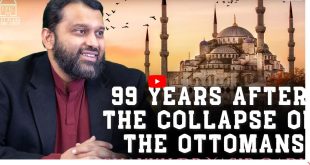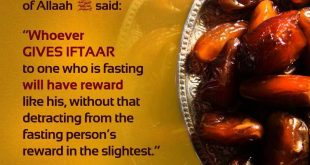One of the challenging literary personalities of Britain, Mohammed Marmaduke Pickthall (MMP) was born in London in a Christian family as William Pickthall on April 7, 1875.
 His mother was Mary O’Brien. His father, Reverend Charles Grayson Pickthall, died when he was only five. In his school years he was a contemporary of Sir Winston Churchill at Harrow private school. His ancestry is traced to William the Conqueror. He was over 30 when WWI broke out.
His mother was Mary O’Brien. His father, Reverend Charles Grayson Pickthall, died when he was only five. In his school years he was a contemporary of Sir Winston Churchill at Harrow private school. His ancestry is traced to William the Conqueror. He was over 30 when WWI broke out.
He visited Turkey, Egypt, Jordan and Palestine where he gained fluency in Arabic. He studied the Orient and was soon acknowledged as a Middle Eastern scholar. He was a strong advocate of the Ottoman Caliphate.
The year 1917 was a year of revolution in his life. When delivering a lecture on Islam and progress at the Muslim Literary Society in Notting Hill, West London, on Nov. 29, 1917, he publicly declared his embracing of Islam. He was not a hypocrite. He believed what he said and he said what he believed. Very soon this young scholar esteemed by D.H. Lawrence, H.G. Wells and E.M. Froster became a leader among the emerging group of British Muslims.
In 1919, MMP worked for the London based Islamic Information Bureau which also published the weekly “Muslim Outlook.” In 1920 he left England for India where he stayed for 15 years. He worked as editor of Bombay Chronicles for some time.
In 1925, he was offered a job of principal (director) at a Hyderabad college which he gladly accepted. The largest Muslim state of India was established in 1748, commanding a larger area than England with a population of 12 million.
MMP regarded the Holy Qur'an as a “Wonder of the World.” He saw that there was an obligation for Muslims to understand it intimately. So to acquaint the beauty and wisdom of the Qur'an with his English speaking brothers and sisters internationally, he embarked on the mission of translating the Holy Qur'an into English.
In 1928 he took a sabbatical for two years and devoted himself fully to the noble cause. He rendered the glory of the Holy Qur'an into classical Biblical English language and named it the Glorious Qur'an.
For its clarification and authentication he traveled to Egypt and stayed there a few months with the help of Rashid Rida, procuring the authority of Jamia Al-Azhar (University) in Cairo for his translation. MMP had a profound love for the Word of God and noted that while he had great difficulty in remembering a passage in his native English, he could easily memorize page after page of the Holy Qur’an in Arabic with perfect accuracy.
His monumental work of the translation was completed in 1930. And the “Meaning of The Glorious Qur'an By MMP” was published by the Nizam of Hyderabad as a gift to the Muslim Ummah. It was hailed by the Times Literary Supplement as “a great literary achievement.” MMP encouraged the Muslims “to keep the message always in your hearts, and live by it.” In his introduction to the Surahs, he powerfully focused on the universality of Islam.
In 1939 Allen and Unwin published Pickthall's work under license from Knopf in England. Later, Pickthall completed an edition of his translation with corresponding Arabic text (Mushaf) within days of his final departure from India.
Pickthall's translation itself has been translated. In 1958 extracts were translated into Turkish in Ankara. Other extracts were published by M. Cevki Alay and Ali Kitabo in Istanbul the same year. In 1964 it was rendered into Portuguese in Mozambique and in 1960 a trilingual edition — English, Arabic and Urdu — appeared in Delhi. It has also appeared in Tagalog, the national language of the Philippines.
In 1927, MMP took over as editor of “Islamic Culture,” a new quarterly journal published under the Nizam of Hyderabad’s patronage. When in 1927 the Islamic committee of Madras, India, invited him, he delivered his eight lectures which are included in the famous collection named “Khutbat Al Madras.” His lectures on Islam were published separately in 1961 under the title of “The Cultural Side of Islam” by Sheikh Mohammed Ashraf Publishers Lahore (whom the writer met in Hijaz). His lecture entitled “The Tolerance in Islam” is a marvelous piece of scholarship.
This “Soldier of the Faith” and “The Servant of Islam” (as termed in his elegy published in Islamic Culture), after a long stay of 15 years in India, returned to England in 1935.
In 1936 he moved to St. Ives where, at the age of 60, he died on May 19, 1936.
 Sri lanka Muslims Web Portal Diversity and Inclusiveness
Sri lanka Muslims Web Portal Diversity and Inclusiveness



